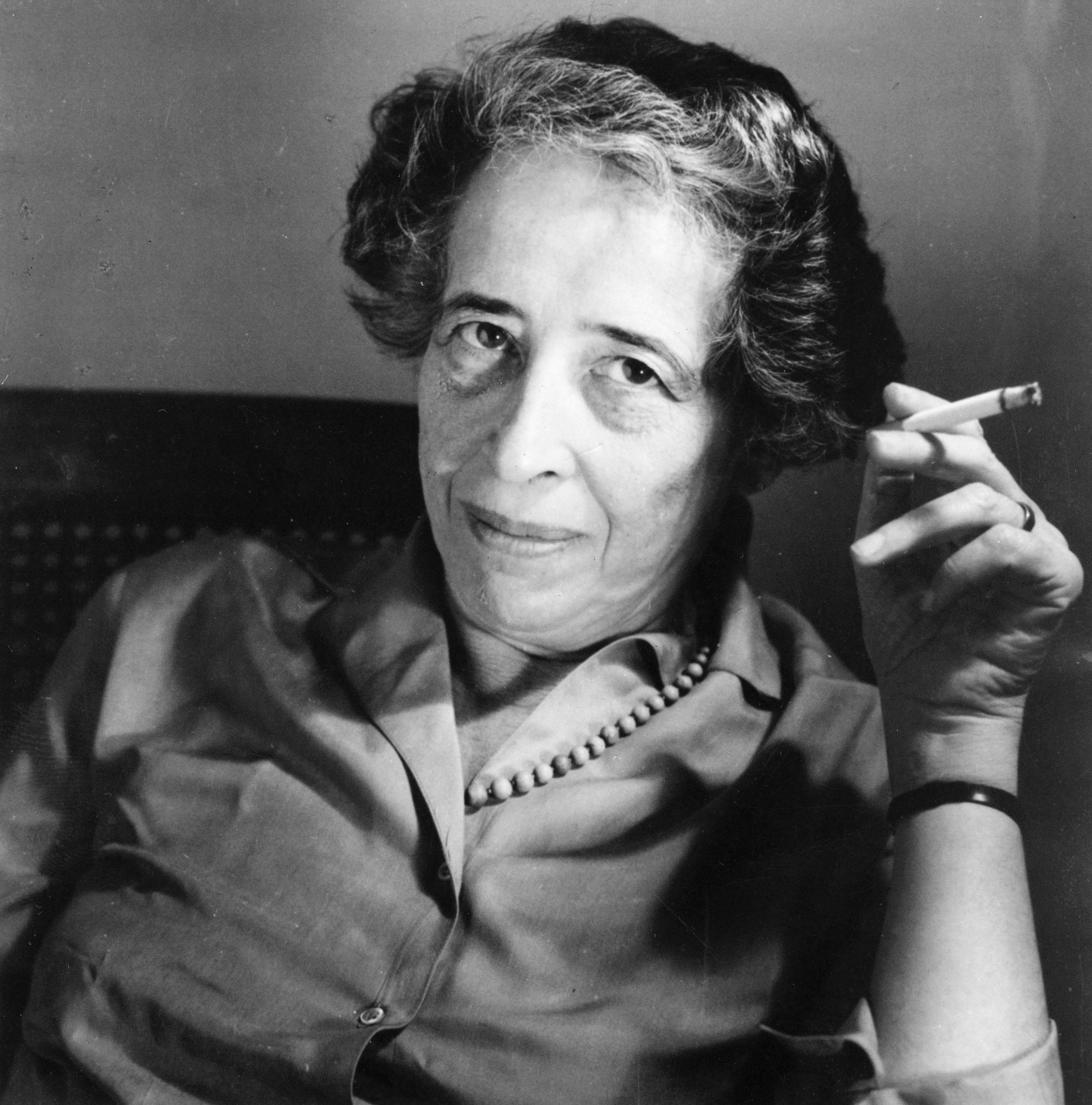

HANNAH ARENDT AND COMMON WORLDBUILDING
IN A NEW AGE OF EXTREMES

The Faculty of Education, in collaboration with the Department of Architecture, is launching the Hannah Arendt Consortium on Crises and Political Transformation, an initiative dedicated to the work of renowned political theorist Hannah Arendt.
The consortium will serve as a research hub to enable better understanding of our contemporary political landscape and its associated risks and threats to the future of democracy, and to the concept of the university itself.
Hannah Arendt was a Jewish and German-born political philosopher who fled to the US in 1941 and is considered to be one of the most influential political theorists of the 20th century. Arendt’s writing covered issues such as totalitarianism, empire, nationhood, and critiques of the nation state, the experiences of refugees, and human rights. She also reflects on the broader aspects of the human condition at the age of modernity such as the political meaning of the public realm and the role of imagination as a political force. Her scholarship was influenced in part by her historical origins as both Jewish in Nazi Germany, and later as a refugee herself.
“Arendt’s profound contemplations on the violence of imperialism and 20th century nation-building could not be more prescient in relation to contemporary political landscapes, particularly populist and authoritarian imaginaries, and their heightened presence in the 21st century,” says Professor Jo-Anne Dillabough, the Director of the consortium.
"Arendt’s profound contemplations on the violence of imperialism and 20th century nation-building could not be more prescient in relation to contemporary political landscapes"
“Arendt’s thought could help us not only in understanding these landscapes of global political turmoil but also in rigorously imagining alternatives to them,” adds Irit Katz, Associate Professor of Architecture and Urban Studies and Academic Director for the consortium. “Her work could assist us in understanding today’s ongoing violent conflicts and the situation of unprecedented numbers of forcibly displaced people worldwide which are expected to increase in this age of climate crisis.”
“Oppressive regimes, the erosion of democratic norms, and widespread human rights violations are becoming, as Arendt attested to in the 20th century, commonplace, but her ideas on political action, imagination and worldbuilding could also support us in thinking on possible political transformations in our current dark times.”
"Oppressive regimes, the erosion of democratic norms, and widespread human rights violations are becoming, as Arendt attested to in the 20th century, commonplace"
“In light of all this, referencing Arendt as a key theoretical framework is not only instrumental for critiquing the present but also for envisioning possible alternatives”, adds Daniele Bassi, Postdoctoral Researcher at the Faculty of Education and Founding Member of the Consortium. “The invocation of 'political transformation' in the Consortium’s name seeks to preserve what Arendt referred to as 'the promise of politics,' beyond the 'global present' marked by widespread political, social, and economic crises.
At the core of the consortium’s mission is a commitment therefore to fostering dialogue and debate among scholars, students, policymakers, activists, artists, and the public about the political conditions of our time and their associated histories. By bringing together these diverse perspectives and expertise, the consortium aims to generate fresh insights and novel approaches to some of the most pressing problems of our time.
The consortium will study three key areas discussed by Arendt: common worldbuilding; exile and statelessness; and freedom, plurality, and the promise of politics. They invite the university community, the wider public and global thought leaders to engage with them in this critical endeavour, particularly as the university strives to reimagine itself in a time of highly conflicted global political imaginaries.
The Faculty of Education and the Department of Architecture will seek to partner Cambridge’s Hannah Arendt Consortium with other research centres around the world, and is already formally partnered with the Hannah Arendt Centre of Political Studies at the University of Verona.
“Arendt was driven by a hope that our political and intellectual futures would be filled with hopeful narratives of political promise, plurality and imaginative forms of responsibility – all of which would play a role in resisting world alienation, conflict and atrocity in the face of devastating historiographies of imperial violence,” says Dillabough.
“The consortium, in its transdisciplinary orientation, through research and global dialogue, embraces Arendt’s hopes as we confront a new age of politics in the 21st century.”
A two-day conference to launch the consortium will take place at the Faculty of Education on Thursday 26 and Friday 27 September, with keynote speakers Professor Bonnie Honig, Nancy Duke Lewis Professor of Modern Culture, Media and Political Science at Brown University, and Professor Michalinos Zembylas, Professor of Educational Theory and Curriculum Studies at the Open University of Cyprus. Find out more and register to attend to attend.
Image: Jewish Chronicle Archive/Heritage Images, photographer unknown.